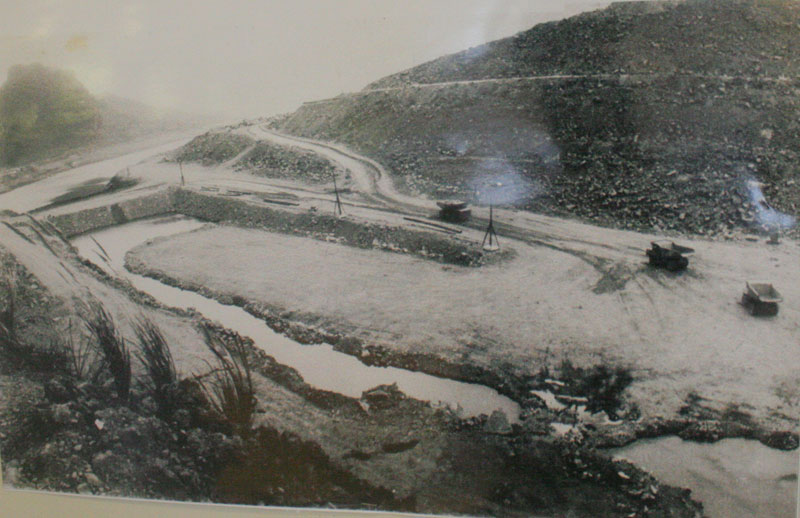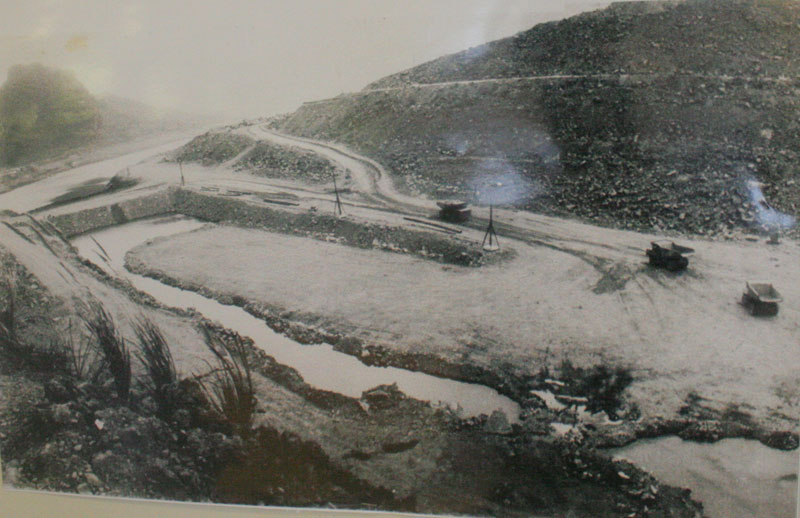
HBO – The Hoa Binh Hydropower Plant has been an attractive destination to tourists when visiting Hoa Binh Lake.

The plant has a total capacity of 1,920 MW and an annual
electricity output of more than 9.5 billion KWh.
Construction on the project started at a time when the country
just ended the resistance war against the US and was facing a lot of
difficulties and deprivation, with complicated construction conditions and high
pressure on progress. Tens of thousands of youths from rural areas in the
northern region volunteered to work at the construction site – the Communist
Youth Site. More than 500 engineers and technicians, who had freshly graduated
from universities and vocational schools, and 800 experts who were project
managers, engineers, and skilled workers of the Soviet Union were sent to the
site.
Hoa Binh Hydropower Plant on the
day the river was separated and the dam was built.
Officials, soldiers, engineers, workers and Soviet Union experts
worked hard with the slogan "For the future electric current of the nation”.
Therefore, the construction progress was never interrupted. The high resolve,
energy, creativeness and high consensus created a lot of miracles, and many
records were set at the construction site.
On January 12, 1983, the first phase of the Da River separation
was carried out, while construction on projects to separate the Da River in the
second phase finished on January 9, 1986.
In late 1988, after nine years since the construction started, the
first turbine began generating electricity and the Hoa Binh Hydropower Plant
was officially put into operation. Other turbines then started generating
electricity as scheduled.
On December 20, 1994, the plant with eight turbines and a total
capacity of 1,920 MW was inaugurated and connected to the national grid, showing
the breakthrough development of the Vietnamese energy sector and the
electricity sector in particular.
For the nation’s electric current, 168 Vietnamese and Soviet Union
officials, experts and workers laid down their lives during the construction
process, becoming a symbol of sacrifice and devotion for the friendship between
Vietnam and the Soviet Union, and now the Russian Federation. Since its operation,
the Hoa Binh Hydropower Plant has generated over 200 billion kWh of
electricity, contributing to the country’s economic development./.
A diverse chain of eco-tourism and resort destinations concentrated in Hoa Binh city and the districts of Tan Lac, Da Bac, and Luong Son… Along with the launch of several key high-quality resort tourism projects, these developments have reshaped the landscape and enhanced the appeal of Hoa Binh as a travel destination.
Boasting diverse terrain, a mild climate, and rich natural resources, Cao Phong district is increasingly asserting its place on Vietnam’s tourism map, attracting both domestic and foreign visitors. The district is renowned for its stunning landscapes, majestic mountains, a crystal-clear hydropower lake, and the unique cultural identity of local ethnic groups.
With its pristine landscapes, unique cultural heritage of Muong ethnic minority, and an expanding range of visitor experiences, Tan Lac district of Hoa Binh has fast become a captivating destination for both domestic and international tourists.
Until now, Sung village in Cao Son commune, Da Bac district remains the only Dao ethnic community in Hoa Binh province to develop a community-based tourism model. Beyond its untouched natural landscapes, cultural identity serves as the cornerstone attraction for visitors.
Alongside the diverse cultural identities of the Kinh, Muong, Tay, Thai, Dao, and Mong ethnic people, Hoa Binh province is also renowned as the "capital" of the northwestern Vietnamese cuisine, offering unique and distinctive dishes. At festivals, during Lunar New Year (Tet), or on significant family or community occasions, special dishes are prepared, leaving a lasting impression on visitors.
A Phong Linh (Yellow Tabebuia) flower garden in Thang village, Thach Yen commune, Cao Phong district is currently in full bloom, drawing a large number of visitors.



